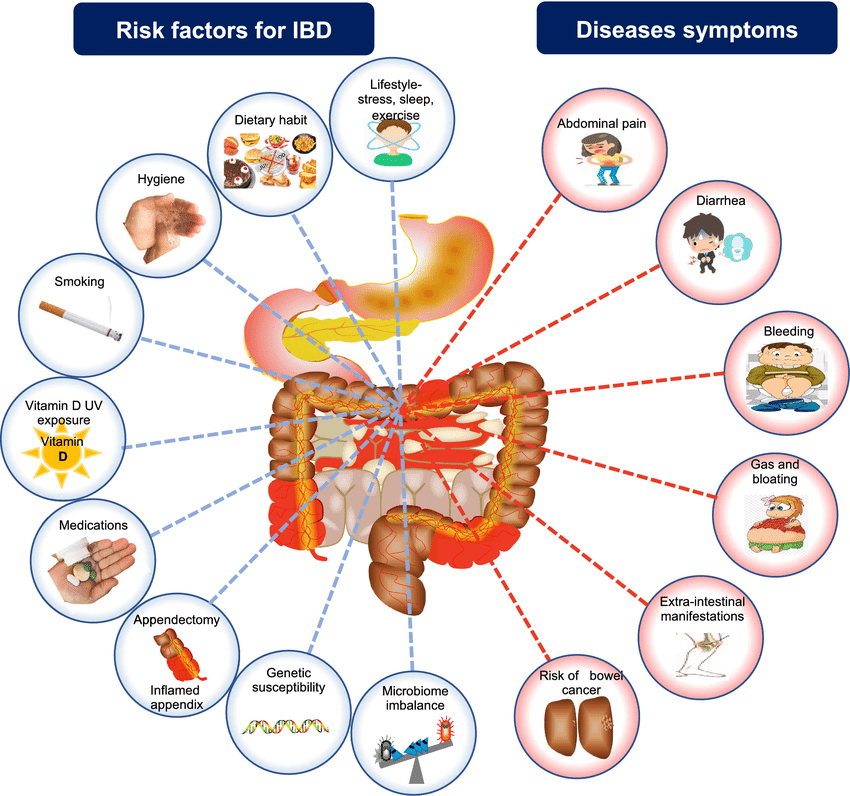Inflammatory Bowel Disease (IBD) | 26 Apr 2024
Why in News?
Recently, Inflammatory Bowel Disease (IBD) comprising primarily Ulcerative Colitis and Crohn’s Disease has been on the rise globally.
What is Inflammatory Bowel Disease (IBD)?
- About: IBD is an umbrella term for chronic inflammatory conditions affecting the gastrointestinal (GI) tract.
- Two main forms of IBD:
- Crohn's disease: It can affect any part of the digestive tract, from mouth to anus. Inflammation can be patchy, meaning areas of healthy tissue can be interspersed with inflamed areas. It often affects the deeper layers of the bowel wall.
- Ulcerative colitis: Limited to the inner lining (mucosa) of the large intestine (colon) and rectum. The inflammation is continuous, affecting the entire colon in severe cases.
- Two main forms of IBD:
- Causes: The exact cause of IBD remains unknown, but research suggests a complex interplay of factors like genetics, immune system and environmental factors.
- Symptoms: Abdominal pain and cramping, diarrhea, often bloody, urgent need to have a bowel movement, weight loss and fatigue.
- Treatment: There is no cure for IBD, but treatments aim to manage symptoms and induce remission. These include medications, dietary modifications and surgeries.
- Challenges in India:
- The incidence of IBD has almost doubled in India from 1990 to 2019, underscoring an urgent need for early detection to facilitate better treatment outcomes.
- Diagnosing IBD in India presents unique challenges, especially in distinguishing between Crohn’s Disease and intestinal tuberculosis due to similar clinical symptoms.
- Lifestyle changes, including a shift towards a Westernized diet, are cited as contributing factors to the rising incidence of IBD in India.
Note
IBD is a chronic inflammatory disease of the digestive tract influenced by genetic, immune, and environmental factors, whereas Irritable Bowel Syndrome (IBS) is a non-inflammatory functional bowel disorder possibly linked to altered gut-brain interactions, heightened gut nerve sensitivity, or digestive muscle contraction issues.
UPSC Civil Services Examination, Previous Year Questions (PYQs)
Prelims:
Q. Which one of the following statements best describes the role of B cells and T cells in the human body? (2022)
(a) They protect the body from environmental allergens.
(b) They alleviate the body’s pain and inflammation.
(c) They act as immunosuppressants in the body.
(d) They protect the body from diseases caused by pathogens.
Ans: (d)
Q. In the context of hereditary diseases, consider the following statements: (2021)
- Passing on mitochondrial diseases from parent to child can be prevented by mitochondrial replacement therapy either before or after in vitro fertilization of the egg.
- A child inherits mitochondrial diseases entirely from mother and not from father.
Which of the statements given above is/are correct?
(a) 1 only
(b) 2 only
(c) Both 1 and 2
(d) Neither 1 nor 2
Ans: (c )

